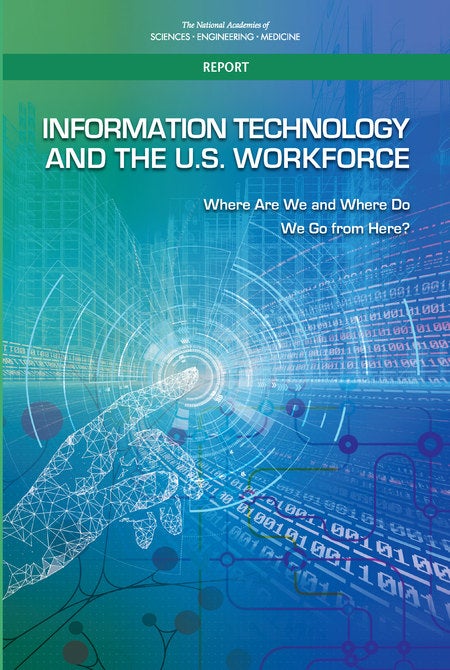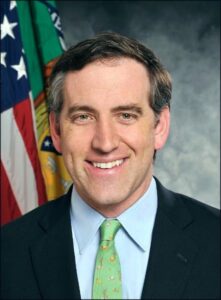Companies are investing large amounts in tools that use data to better understand and target products and services to customers. Policymakers should follow suit. A report that was issued last Thursday by the U.S. National Academies of Sciences, Engineering and Medicine highlighted large data gaps that inhibit policymakers’ understanding of our changing economy. The report, “Information Technology and the U.S. Workforce: Where Are We and Where do We Go from Here?”, is a meaningful contribution to our understanding of how technology and automation are impacting our economy.
Authors Erik Brynjolfsson and Tom Mitchell conclude, in a companion commentary in Nature, that “much of the data needed to spot, understand and adapt to workforce challenges are not gathered in a systematic way, or worse, do not exist. The irony of our information age is that despite the flood of online data, decision-makers all too often lack timely, relevant information.” The study recommends that federal agencies or other organizations establish a sustained, multidisciplinary public-private research program to encourage timely data sharing and develop new mechanisms to track, forecast, and assess the latest economic and technological changes.
“This new information infrastructure should be integrated with existing core indexes that track key measures such as employment, earnings, recruitment, lay-offs, resignations and productivity — and combined with powerful data sources from the private sector. This will enable statistics and analysis to shed light on standard key indicators of the economy in the context of ongoing change.”
The Future of Work Initiative (FoWI) has also highlighted the need for better data to understand the changing economy. The growth of the independent workforce is, in part, not well understood because the Bureau of Labor Statistics (BLS) discontinued its Survey on the Contingent Workforce in 2005. In the fall of 2015, FoWI worked with the research community and the Department of Labor to revive the Contingent Worker Survey, and was encouraged that BLS decided to conduct the survey this year for the first time in over a decade. Moreover, in our recent report, Toward a New Capitalism, we propose greater corporate disclosure of worker pay, benefits, and training, as well as a separate, in-depth employer survey of training practices.
In order to help policymakers understand the dramatic changes occurring in our data-driven economy, it will be important that we find innovative solutions to improve our ability to collect and analyze data.


